|
|
|
|
|
|
|
|
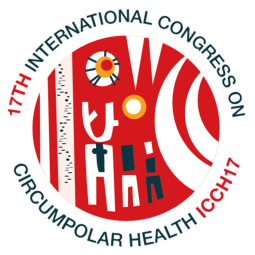 The ICCH congresses are held every third year in different locations in the circumpolar area and represent the largest scientific meetings worldwide on circumpolar health. The ICCH congresses serve as the primary source of information exchange and scholarly communication in issues relating to circumpolar health. More than 750 participants generally register and participate in each Congress, and more than 400 scientific papers or posters are usually presented.
|
Media
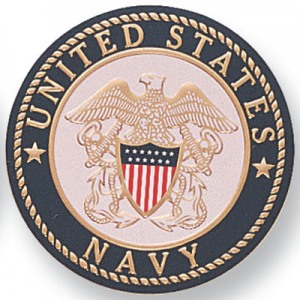 US Secretary of the Navy Calls for Greater Presence in Alaska. US Secretary of the Navy Calls for Greater Presence in Alaska. President Trump signed the National Defense Authorization Act Monday, approving over $700 billion for the national defense budget for fiscal year 2019. Over the past week in Alaska, we've seen service secretaries from three different military branches, the Army, the Air Force, and the Navy. Channel 2 wanted to know if these visits will actually prompt more concrete military spending in our state? After speaking to Secretary of the Navy Richard V. Spencer and Sen. Dan Sullivan Monday, one thing is clear: Alaska is well-positioned to receive more military funding. KTUU
Biggest-ever Earthquake Recorded on North Slope. The biggest-ever earthquake on the North Slope was recorded just before 7 a.m. Sunday morning, about 50 miles southwest of Kaktovik. So far, there are no reports of any significant impacts to communities or infrastructure as a result of the 6.4 quake. "This is the biggest earthquake within a few hundred miles, at least, of that area that we have records for," Alaska Earthquake Center seismologist Michael West said. Alaska Public Radio
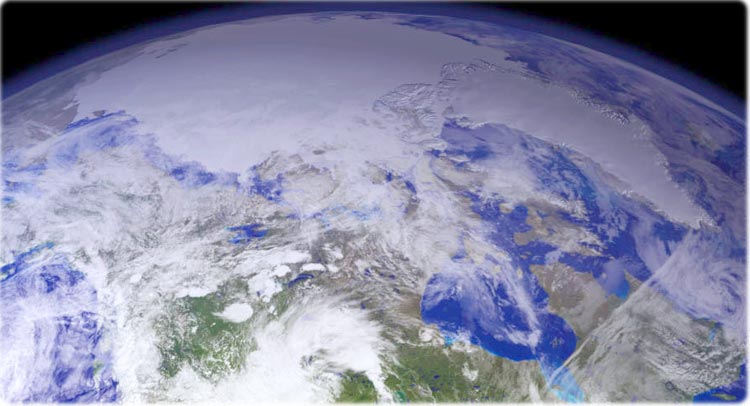 Arctic Climate Research May Have 'Troubling Blind Spots.' Arctic Climate Research May Have 'Troubling Blind Spots.' Our understanding of climate change across the Arctic - and its implications for the rest of the world - may have troubling blind spots. That's according to Daniel Metcalfe, a researcher at Lund University in Sweden. He examined a database of scientific articles on the Arctic. His findings, published in the most recent Nature Ecology and Evolution, suggest scientists rely on data largely collected in only a handful of Arctic locations. The Weather Network
Swedish Climate Study Icebreaker Reaches North Pole. Sweden this summer has suffered the most wildfires in modern times in what might be linked to human-caused climate changes. While emergency services got help from other European partners to fight the blazes, the Swedish Polar Research Secretariat embarked on board the country's most prominent icebreaker, the «Oden». This Sunday, «Oden» crushed the last miles of sea ice and reached the top of the world, 90 degrees north, with an on board group of 40 researchers from around the globe. Main goal: to study how the formation of clouds in the Arctic affects the climate in times of melting pack ice. The Barents Observer
 Copenhagen Conference Shines Spotlight on Arctic Health Care. Copenhagen Conference Shines Spotlight on Arctic Health Care. Arctic health care practitioners and researchers are meeting in Copenhagen this week for the 17th International Congress on Circumpolar Health, focused on the shared goal of "Moving Circumpolar Health Forward." "We wish to focus on what the future may bring to health of populations in circumpolar areas, and how health of populations in these parts of the world may be improved," said Dr. Anders Koch, a professor at Greenland's university, Ilisimatusarfik, and the congress's president, during his introduction to conference participants, who include many delegates from Canada's three territories. Nunatsiaq Online
|
|
Future Events
The Causes and Consequences of a Rapidly Changing Arctic, August 16, 2018 (Washington, DC USA and via webinar). Earth's climate system is highly interconnected, meaning that changes to the global climate influence the United States climatically and economically. In much the same way as European and Asian financial markets affect the U.S. economy, changes to ice sheet mass and energy flows in the far reaches of the planet affect our climate. Life on Earth is sensitive to climate conditions; human society is especially susceptible due to the climate-vulnerable, complex, and often fragile systems that provide food, water, energy, and security. This event is part of the Climate Science Special Report (CSSR) Seminar Series by the US Global Change Research Program in partnership with the National Oceanic and Atmospheric Administration. The presenter will be Dr. Patrick C. Taylor, Climate Research Scientist, NASA Langley Research Center.
August NWS Alaska Climate Outlook Briefing, August 17, 2018 (Fairbanks, Alaska USA or via webinar). The tools and techniques for making monthly and season scale climate forecasts are rapidly changing, with the potential to provide useful forecasts at the month and longer range. We will review recent climate conditions around Alaska, review some forecast tools and finish up the Climate Prediction Center's forecast for September and the Fall/early winter season. This event is part of the National Oceanic and Atmospheric Administration Science Seminar Series.
The Fourth US National Climate Assessment: An Overview of Volume 1, August 28, 2018 (Washington, DC and via webinar). This event is part of the Climate Science Special Report (CSSR) Seminar Series by the US Global Change Research Program in partnership with the National Oceanic and Atmospheric Administration. New observations and new research have increased our understanding of past, current, and future climate change. The Fourth National Climate Assessment confirms prior assessments in concluding that the climate on our planet, including the United States, is changing, and changing rapidly. Observational evidence for a changing climate abounds, from the top of the atmosphere to the depths of the oceans. The speaker will be Donald J. Wuebbles, the Harry E. Preble Professor of Atmospheric Science at the University of Illinois.
UArctic Congress 2018, September 3-7, 2018 (Oulu and Helsinki, Finland). The UArctic Congress 2018 will bring together key
UArctic meetings and  a science conference into one single gathering, including business meetings of the Council of UArctic, Rectors' Forum, Student Forum, and Thematic Networks & UArctic Institutes Leadership Team. The Congress is an integral part of the Finland's Arctic Council chairmanship program, and open to the public. The event will highlight the themes and priorities of the Finnish chairmanship, including the goals of the United Nations' 2030 Agenda for Sustainable Development, and the Paris Agreement under the UN Framework Convention on Climate Change. a science conference into one single gathering, including business meetings of the Council of UArctic, Rectors' Forum, Student Forum, and Thematic Networks & UArctic Institutes Leadership Team. The Congress is an integral part of the Finland's Arctic Council chairmanship program, and open to the public. The event will highlight the themes and priorities of the Finnish chairmanship, including the goals of the United Nations' 2030 Agenda for Sustainable Development, and the Paris Agreement under the UN Framework Convention on Climate Change.
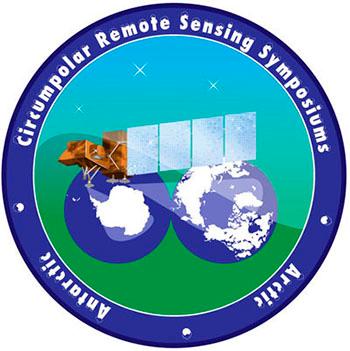
September NWS Alaska Climate Outlook Briefing, September 21, 2018 (Fairbanks, Alaska USA and via webinar). The tools and techniques for making monthly and season scale climate forecasts are rapidly changing, with the potential to provide useful forecasts at the month and longer range. We will review recent climate conditions around Alaska, review some forecast tools and finish up the Climate Prediction Center's forecast for October and the early winter season. This event is part of the National Oceanic and Atmospheric Administration Science Seminar Series.
Scientific Exploration of the Arctic and North Pacific (SEA-NorP), September 25-27, 2018 (Mt. Hood, Oregon USA). This workshop will include discussion of hypotheses that can be tested by scientific drilling in the region, the technology necessary to achieve those goals, ideal sites for drilling based on existing data, and where additional site survey data is needed. The goal of the workshop organizers is that multiple proposals will be initiated at the workshop, both for full cruise legs and for shorter, targeted expeditions around the following themes: ocean gateways, geohazards, volatile cycling, ice histories at transition zones, biosphere and climate.
The second Arctic Biodiversity Congress is hosted by the Conservation of Arctic Flora and Fauna (CAFF), the biodiversity working group of the Arctic Council, and the Ministry of the Environment, Finland. The second Arctic Biodiversity Congress will build on the success of the first Congress, held in 2014 in Trondheim, Norway, and will bring together scientists, policymakers government officials, Indigenous representatives, Traditional Knowledge holders, industry, non-governmental organizations, and others to promote the conservation and sustainable use of Arctic biodiversity.
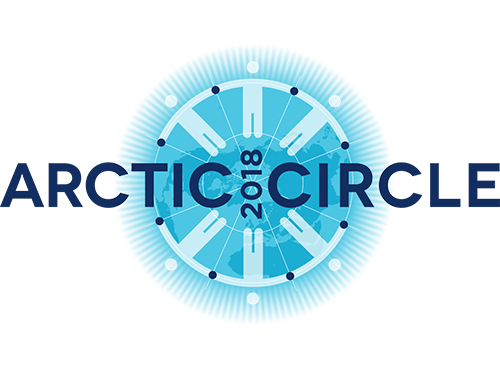 Arctic Circle Assembly, October 2018 (Reykjavik, Iceland). The annual Arctic Circle Assembly is the largest annual international gathering on the Arctic, attended by more than 2000 participants from 60 countries. It is attended by heads of states and governments, ministers, members of parliaments, officials, experts, scientists, entrepreneurs, business leaders, indigenous representatives, environmentalists, students, activists and others from the growing international community of partners and participants interested in the future of the Arctic. Arctic Circle Assembly, October 2018 (Reykjavik, Iceland). The annual Arctic Circle Assembly is the largest annual international gathering on the Arctic, attended by more than 2000 participants from 60 countries. It is attended by heads of states and governments, ministers, members of parliaments, officials, experts, scientists, entrepreneurs, business leaders, indigenous representatives, environmentalists, students, activists and others from the growing international community of partners and participants interested in the future of the Arctic.
Arctic Science Forum Associated with the 2nd Arctic Science Ministerial, October 25, 2018 (Berlin, Germany and via webcast). How vulnerable and how resilient are nature and the people of the Arctic region? How well do we understand the regional and global dynamics which are driving change in the Arctic? What impact will change in the Arctic have on us? These and other questions are the focus of this two-day conference. It will take interdisciplinary research in the Arctic to gain an understanding of past and future processes - a complex and cost-intensive venture. This makes an international network of Arctic research so important for delivering better results. Cooperation in research, the exchange of data, collaborative observation and monitoring schemes - international cooperation is imperative in research on the Arctic.
Only the Science Forum, on October 25th, will be webcast. The Arctic Ministerial, on October 26th, will NOT be webcast.
Maritime & Arctic Security & Safety Conference (MASS18) "Arctic Technology" November 15-16, 2018 (Newfoundland & Labrador Canada). Now in its sixth year, MASS has gained an international reputation as a must-attend event to gain a wide perspective on challenges, opportunities and policies related to the Arctic and North Atlantic maritime environments. The aim of this Government of Canada and the Government of Newfoundland and Labrador supported international conference is to promote stakeholder collaboration, technological innovation, harsh environment research & development, and world-class education efforts that are contributing to both Maritime and Arctic issues. This two day conference will draw a diverse group of speakers and attendees representing government, military, Canadian and U.S. Coast Guard, industry, academic leaders, Northern Leaders, research and other key stakeholders. We hope you can join us to be a part of this important dialogue
American Geophysical Union Fall meeting, December 10-14, 2018 (Washington, DC USA). The AGU 2018 Fall Meeting will mark another dynamic year of discovery in Earth and space science, serve as the advent of AGU's Centennial year, and provide a special opportunity to share our science with world  leaders in Washington, D.C. As the largest Earth and space science gathering in the world, the Fall Meeting places you in the center of a global community of scientists drawn from myriad fields of study whose work protects the health and welfare of people worldwide, spurs innovation, and informs decisions that are critical to the sustainability of the Earth.
ArcticNet: Annual Scientific Meeting 2018, December 10-14, 2018 (Ottawa, ON Canada). Canada's North is experiencing unprecedented change in its sea and terrestrial ice, permafrost and ecosystems under the triple pressures of climate change, industrialization and modernization. The impacts of these pressures can be seen on food and energy security, shipping, sovereignty, northern community health and well-being, and sustainable development and resource exploitation. All these issues have brought the North to the forefront of national and international agendas. Building on the success of its previous Annual Scientific Meetings and International Arctic Change Conferences, the Arctic Network of Centers of Excellence announces the 14th ArcticNet Annual Scientific Meeting.
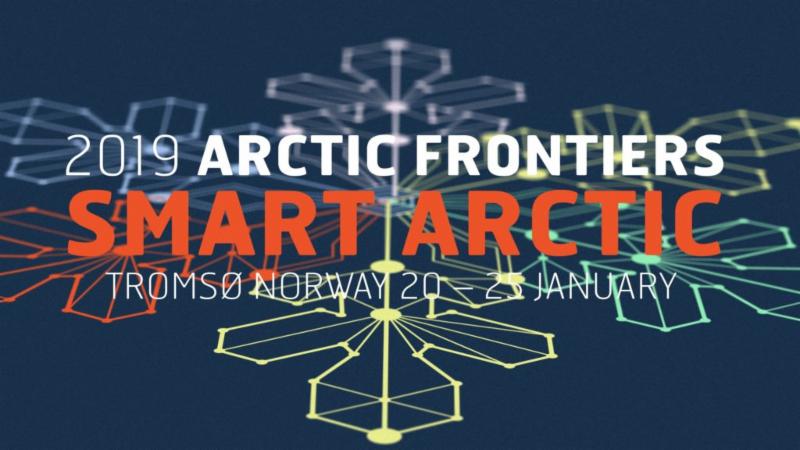 is a global scientific conference on economic, societal, and environmental sustainable growth. This year's theme will be "Smart Arctic," with a pan-arctic emphasis, and an effort to build new partnerships across nations, generations and ethnic groups. Arctic Frontiers provides a forum for dialogue and communication between science, government and industry. The plenary program will have five main sessions: State of the Arctic, Blue Growth, Smart Solutions, Bridging the Gap, and Arctic business prospects. An abstract-driven science program will address Plastics in the Ocean, the Future of Governance and Handling Vulnerability in Arctic Ecosystems, State of the Arctic and A Smart Arctic Future.
 of the AAG includes over 8,500 geographers converging from the U.S., Canada, and nearly 60 other countries in a typical year including geographers, GIS specialists, environmental scientists, and other leaders for the latest in research and applications in geography, sustainability, and GIScience. of the AAG includes over 8,500 geographers converging from the U.S., Canada, and nearly 60 other countries in a typical year including geographers, GIS specialists, environmental scientists, and other leaders for the latest in research and applications in geography, sustainability, and GIScience.
|
|

  
4350 N. Fairfax Drive, Suite 510
Arlington, VA 22203, USA
External links in this publication, and on the USARC's World Wide Web site ( www.arctic.gov) do not constitute endorsement by the US Arctic Research Commission of external Web sites or the information, products or services contained therein. For other than authorized activities, the USARC does not exercise any editorial control over the information you may find at these locations. These links are provided consistent with the stated purpose of this newsletter and the USARC Web site.
|
|
|
|
|
|
|
|
|
 US Secretary of the Navy Calls for Greater Presence in Alaska. President Trump signed the National Defense Authorization Act Monday, approving over $700 billion for the national defense budget for fiscal year 2019. Over the past week in Alaska, we've seen service secretaries from three different military branches, the Army, the Air Force, and the Navy. Channel 2 wanted to know if these visits will actually prompt more concrete military spending in our state? After speaking to Secretary of the Navy Richard V. Spencer and Sen. Dan Sullivan Monday, one thing is clear: Alaska is well-positioned to receive more military funding. KTUU
US Secretary of the Navy Calls for Greater Presence in Alaska. President Trump signed the National Defense Authorization Act Monday, approving over $700 billion for the national defense budget for fiscal year 2019. Over the past week in Alaska, we've seen service secretaries from three different military branches, the Army, the Air Force, and the Navy. Channel 2 wanted to know if these visits will actually prompt more concrete military spending in our state? After speaking to Secretary of the Navy Richard V. Spencer and Sen. Dan Sullivan Monday, one thing is clear: Alaska is well-positioned to receive more military funding. KTUU Arctic Climate Research May Have 'Troubling Blind Spots.' Our understanding of climate change across the Arctic - and its implications for the rest of the world - may have troubling blind spots. That's according to Daniel Metcalfe, a researcher at Lund University in Sweden. He examined a database of scientific articles on the Arctic. His findings, published in the most recent Nature Ecology and Evolution, suggest scientists rely on data largely collected in only a handful of Arctic locations. The Weather Network
Arctic Climate Research May Have 'Troubling Blind Spots.' Our understanding of climate change across the Arctic - and its implications for the rest of the world - may have troubling blind spots. That's according to Daniel Metcalfe, a researcher at Lund University in Sweden. He examined a database of scientific articles on the Arctic. His findings, published in the most recent Nature Ecology and Evolution, suggest scientists rely on data largely collected in only a handful of Arctic locations. The Weather Network Copenhagen Conference Shines Spotlight on Arctic Health Care. Arctic health care practitioners and researchers are meeting in Copenhagen this week for the 17th International Congress on Circumpolar Health, focused on the shared goal of "Moving Circumpolar Health Forward." "We wish to focus on what the future may bring to health of populations in circumpolar areas, and how health of populations in these parts of the world may be improved," said Dr. Anders Koch, a professor at Greenland's university, Ilisimatusarfik, and the congress's president, during his introduction to conference participants, who include many delegates from Canada's three territories. Nunatsiaq Online
Copenhagen Conference Shines Spotlight on Arctic Health Care. Arctic health care practitioners and researchers are meeting in Copenhagen this week for the 17th International Congress on Circumpolar Health, focused on the shared goal of "Moving Circumpolar Health Forward." "We wish to focus on what the future may bring to health of populations in circumpolar areas, and how health of populations in these parts of the world may be improved," said Dr. Anders Koch, a professor at Greenland's university, Ilisimatusarfik, and the congress's president, during his introduction to conference participants, who include many delegates from Canada's three territories. Nunatsiaq Online

 a science conference into one single gathering, including business meetings of the Council of UArctic, Rectors' Forum, Student Forum, and Thematic Networks & UArctic Institutes Leadership Team. The Congress is an integral part of the Finland's Arctic Council chairmanship program, and open to the public. The event will highlight the themes and priorities of the Finnish chairmanship, including the goals of the United Nations' 2030 Agenda for Sustainable Development, and the Paris Agreement under the UN Framework Convention on Climate Change.
a science conference into one single gathering, including business meetings of the Council of UArctic, Rectors' Forum, Student Forum, and Thematic Networks & UArctic Institutes Leadership Team. The Congress is an integral part of the Finland's Arctic Council chairmanship program, and open to the public. The event will highlight the themes and priorities of the Finnish chairmanship, including the goals of the United Nations' 2030 Agenda for Sustainable Development, and the Paris Agreement under the UN Framework Convention on Climate Change.


